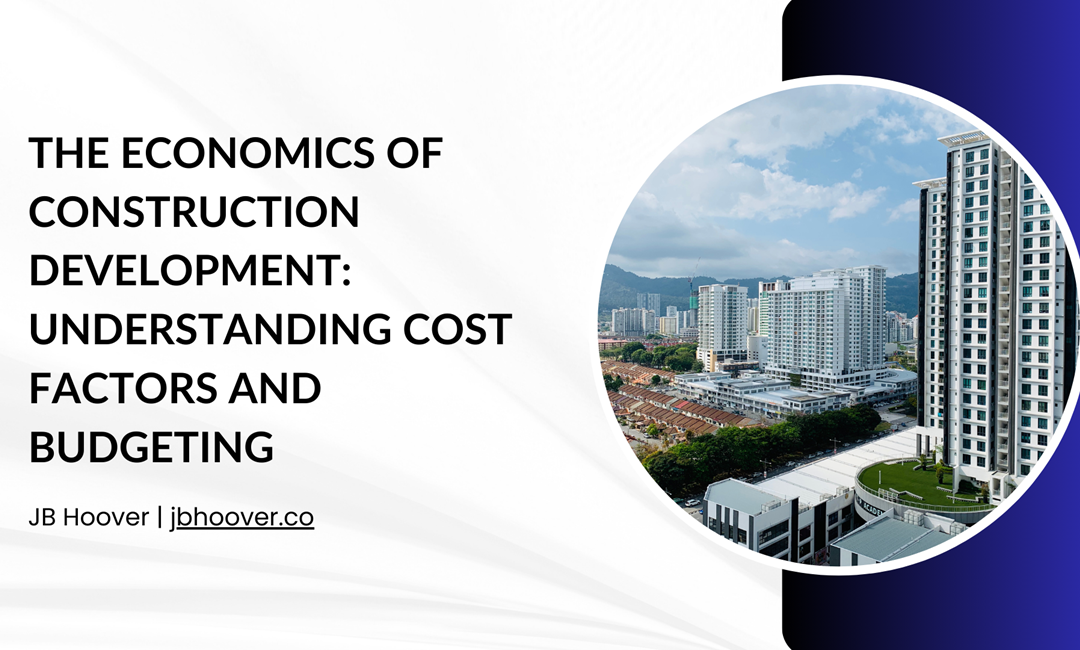Construction development projects are complex undertakings that require careful planning, budgeting, and management of resources to ensure success. Understanding the economics of construction development is essential for developers, contractors, and project managers to effectively control costs, maximize efficiency, and achieve project objectives within budgetary constraints. By analyzing cost factors and implementing effective budgeting strategies, stakeholders can mitigate financial risks and optimize the return on investment for construction projects.
One of the primary cost factors in construction development is the cost of materials and labor. The prices of construction materials, such as lumber, steel, concrete, and glass, can fluctuate due to market demand, supply chain disruptions, and geopolitical factors. Similarly, labor costs, including wages, benefits, and overhead expenses, can vary depending on the availability of skilled labor, prevailing wage rates, and labor market conditions. To accurately estimate project costs, developers and contractors must conduct thorough market research and procurement planning to identify reliable suppliers and subcontractors and negotiate favorable pricing agreements.
Moreover, site conditions and environmental factors can significantly impact construction costs and project timelines. Site preparation and remediation, such as clearing, grading, and soil stabilization, can add significant expenses to construction projects, particularly in urban or environmentally sensitive areas. Additionally, environmental regulations, permitting requirements, and compliance costs can increase project costs and administrative burdens. By conducting comprehensive site assessments and environmental impact studies early in the planning process, developers can identify potential challenges and factor them into project budgets and schedules.
Furthermore, design complexity and project specifications can influence construction costs and resource allocation. Projects with intricate architectural designs, unique structural requirements, or specialized building systems may require higher levels of expertise, materials, and labor, resulting in increased costs and longer construction timelines. To manage costs effectively, developers should collaborate closely with architects, engineers, and consultants to optimize design solutions, and value-engineer building components, and identify cost-saving opportunities without compromising quality or functionality.
Additionally, unforeseen events and risks, such as construction delays, regulatory changes, weather disruptions, and supply chain disruptions, can impact construction costs and project timelines. To mitigate these risks, developers and contractors should develop contingency plans and allocate reserves for unforeseen expenses. Implementing project management best practices, such as regular progress monitoring, risk assessment, and communication, can help identify potential risks early and implement timely mitigation measures to minimize their impact on project budgets and schedules.
Moreover, effective budgeting and financial management are critical for ensuring the success and sustainability of construction development projects. Developers should establish realistic project budgets based on accurate cost estimates, market analysis, and risk assessments. Throughout the project lifecycle, project managers should monitor actual expenditures against budgeted costs, identify variances and deviations, and implement corrective actions as needed to keep the project on track financially. By implementing robust budgeting and financial management practices, stakeholders can optimize resource allocation, control costs, and maximize the return on investment for construction development projects.
In conclusion, understanding the economics of construction development is essential for stakeholders to effectively control costs, manage resources, and achieve project objectives within budgetary constraints. By analyzing cost factors, implementing effective budgeting strategies, and managing risks proactively, developers, contractors, and project managers can optimize project outcomes, enhance financial performance, and deliver successful construction development projects that meet the needs of stakeholders and communities.
